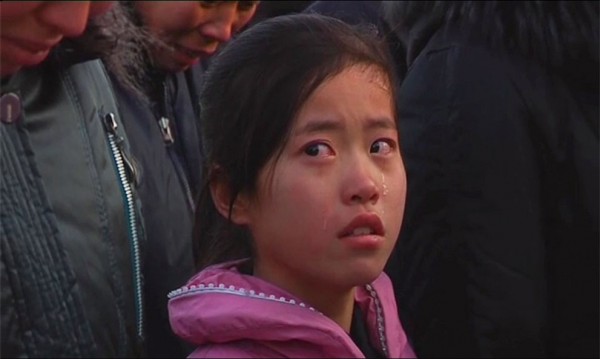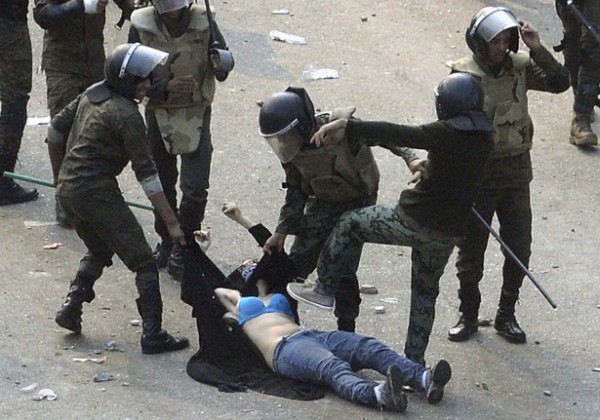Notes
How To Understand All Those Photos of North Koreans Crying Over Kim Jong Il
I’m having trouble relating to writers having trouble relating to the grief over Kim Jong Il. Some are suggesting that North Korean citizens are simply faking the emotion because they know they are being photographed. Others cite theories about crowd behavior, in which one person’s crying can supposedly set off a hysterical and intensifying tide of similar behavior. Just because. More likely though, the reactions to these photos are mirrors into our own cultural psyche. It seems many — ingrained in the core, and unshakeable values of autonomy, free will, “don’t tread on me,”… and having been fed a steady stream of images of Kim as buffoon — look at these photos of crying Koreans not just with disbelief, but with distain.
More specifically, I think it’s almost impossible for Americans to look at these images without believing that a citizen’s sense of free will and individuality is somehow just hovering below the surface. North Korea’s suffocating, manically-enforced and long-standing repression and cultural indoctrination, combined with the effectively religious, wall-to-wall and 24/7 pounding beat of the image and glory of Kim Il Sung, and then Kim Jong Il, cannot be underestimated. The restriction of the North Korean self has likely been so fundamental from birth as to leave most citizens either psychically set in the fold, or at least anxiety-ridden to dare entertain a political thought inside his or her own head.
(For a sense of this personality expressed through photographs, look at this review of Hiroshi Watanabe’s photos from North Korea, along with this group of photos from his website. It’s not that you don’t see individuality or even resistance in faces, but it’s just such a narrow range.)
And so, just like the reaction of a child who loses a parent who has been taking care of her while also abusing her, the reaction is complex. Rather than looking at these photos one-dimensionally — just reading “sadness,” for example — I think what we’re seeing is grief constituted by fear, confusion and a more existential sense of loss.
And yes, I think there is sadness, too, but based on the reverence for an idol that is so primitive and ingrained that there would be much psychological work to do to even begin to distinguish love from hate, or allegiance from intimidation.
(photo: Reuters/Kyodo caption: Pyongyang residents react as they mourn over the death of North Korean leader Kim Jong Il in Pyongyang, in this photo taken by Kyodo on December 19, 2011. (photo 2: Reuters/KCNA via Reuters TV caption: A girl cries as she mourns the death of North Korean leader Kim Jong Il in Pyongyang in this December 19, 2011 still image taken from video.)



Reactions
Comments Powered by Disqus